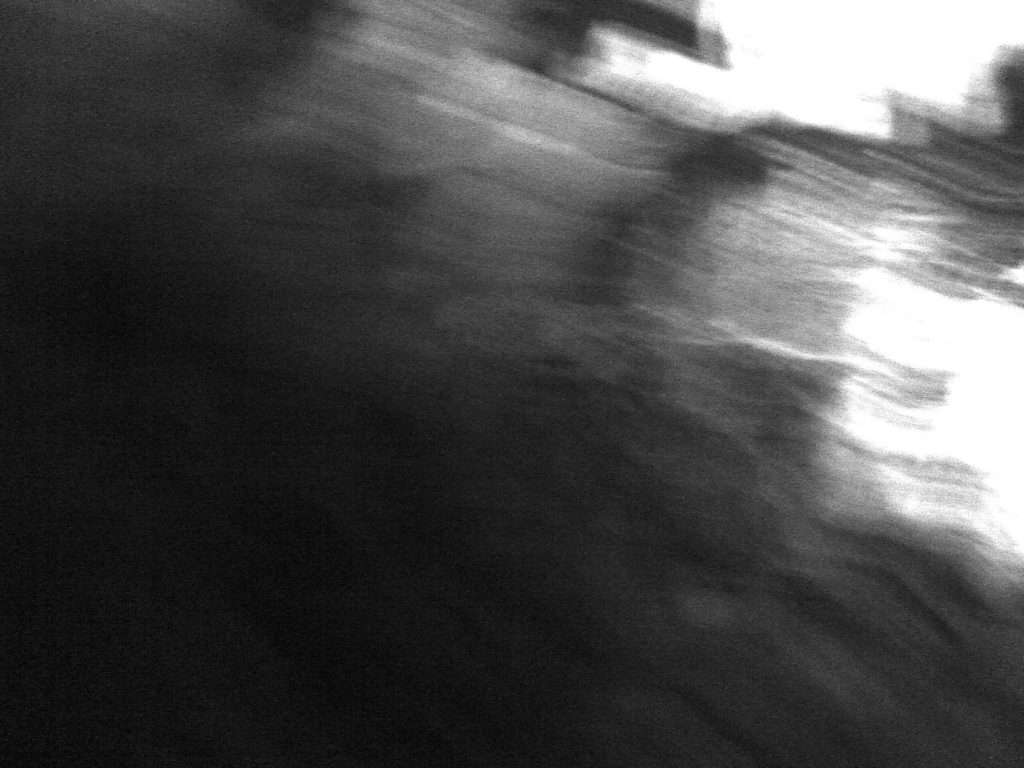January 11, 2020
This SCRY MAGAZINE murmuration with Jacob Appel traverses his experiences as a triage emergency room psychiatrist, a playright and novelist, and an existential interlocutor. Jacob M. Appel is the author of four literary novels, nine short story collections, an essay collection, a cozy mystery, a thriller and a volume of poetry. Jacob is currently an Assistant Professor of Psychiatry and Medical Education at the Mount Sinai School of Medicine and an attending physician at Mount Sinai Hospital, Beth Israel Hospital, and St. Luke’s-Roosevelt Hospital in New York City. At Mount Sinai, he designed and teaches the ethics curriculum for the first and second year medical students, lectures in the psychiatric clerkship, and runs the ethics courses for the psychiatry residents. He also established and supervises a creative writing elective for the medical students. His books can be accessed through www.workman.com/products/who-says-youre-dead and www.blacklawrencepress.com/authors/jacob-m-appel. He invites you to email him at j a c o b m a p p e l at gmail dot com.
Scry is a site for contemplation of experiential data – a forum where latent conundrums can be examined by those for whom they are day-to-day predicaments, rather than abstracted cocktail party topics for reductivist conjecture. We aren’t humorless here, the minds of Scry have simply inhabited cultural capitals where substantive dialectic has been marginalized in between superficiality and avoidance of discomfort.
How can the margin be in between? Doesn’t that indicate that the margin is at the center? Yes. And that is Scry.
Scry is a site for n-dimensional, non-didactic exploration. Yet as much as the armchair can be seductive, to many of us it is a luxury, and we live in a realm of direct, personal experience in which our primal responses – as well as deliberate decisions – are often made on the fly, perhaps under duress. SCRY likes to conceive of this as “resting” or “theoretical” or “passive” ethics, versus “pressurized ethics.” Kicking people into our amygdala is not an armchair activity. It involves a forensic analysis of how our fight flee faun freeze bypass that frontal cortex where things like ethics reside.

APPEL: We are increasingly an alienated society afflicted with an epidemic of loneliness, a culture that bowls alone, so to speak, and then brands the consequences of that disconnection to be mental illness. As a psychiatrist who writes about mental health in both fiction and nonfiction, I am distressed at how we have created such structures and continue to perpetuate them, even though they render many people miserable and benefit almost no one.
– from SCRY MAGAZINE INTERVIEW WITH JACOB APPEL
Scry Magazine delved into another preoccupation of Jacob’s:
SCRY: Your third fascination is “incorruptible people” which is very high up on my list of fascinations so here it is our hinge point in a set of five.
APPEL: There is good evidence at a certain subset of people simply cannot be compelled, no matter how strong the duress, into violating their core principles. For instance, in the famed Milgram experiment, some participants backed out at the onset. This is also a theme of many major works of fiction. We spend lots of time studying the moral transgressors, but much less figuring out what makes incorruptible people incorruptible.
SCRY: Could you murmurate a bit about the Milgram experiment?
APPEL: I imagine many of your readers are familiar with the Milgram experiment. Yet the take home messages is generally that “people follow orders”; I think the take-home message is the opposite. A subject of people don’t follow orders if they view them as unethical. If we could figure out who those people are, and why, that would be a major step toward improving life for all of us.

BIOGRAPHY FOR JACOB APPEL:
Jacob Appel’s first novel, The Man Who Wouldn’t Stand Up, won the 2012 Dundee International Book Award and was published by Cargo. His short story collection, Scouting for the Reaper, won the 2012 Hudson Prize and was published by Black Lawrence Press in 2014. His essay collection, Phoning Home (University of South Carolina Press, 2015) won the Eric Hoffer Book Award. Other recent volumes include Einstein’s Beach House (Butler University/Pressgang, 2014), Miracles and Conundrums of the Secondary Planets (Black Lawrence, 2015), The Magic Laundry (Snake Nation, 2015), Coulrophobia & Fata Morgana (Black Lawrence, 2016), The Topless Widow of Herkimer Street (Augsburg College/Howling Bird, 2016), The Mask of Sanity (Permanent Press, 2017), Millard Salter’s Last Day (Simon & Schuster, 2017), The Liar’s Asylum (Black Lawrence, 2017), The Amazing Mr. Morality (Vandalia/West Virginia University, 2018) and Amazing Things Are Happening Here (Black Lawrence, 2019). Four of these collections received starred reviews from Kirkus. Both Scouting for the Reaper and Miracles and Conundrums were on Small Press Distribution’s best seller list for over a year. A volume of ethics dilemmas for laypeople, Who Says You’re Dead?, is forthcoming with Algonquin.
Jacob’s short fiction has appeared in more than two hundred literary journals including Agni, Colorado Review, Gettysburg Review, Michigan Quarterly Review, Prairie Schooner, Southwest Review, Subtropics, Threepenny Review, Virginia Quarterly Review and West Branch. His prose has won the Boston Review Short Fiction Competition, the Arts & Letters Prize for Fiction, the Greensboro Review’s Robert Watson Prize, the North American Review’s Kurt Vonnegut Prize, the Missouri Review’s Editor’s Prize, the Sycamore Review’s Wabash Prize, the Briar Cliff Review’s Short Fiction Prize, the Salem College Center for Women Writers’ Reynolds Price Short Fiction Award, the Dana Award, the H. E. Francis Prize, the Devil’s Kitchen Reading Award for Fiction, an Elizabeth George Fellowship, a Sherwood Anderson Foundation Writers Grant, residencies at Yaddo and the Vermont Studio Center, and the New Millennium Writings Fiction Award on four separate occasions. He has been awarded first prize in the annual William Faulkner-William Wisdom competition in four distinct categories—essay, short story, novella and novel—making him the only author ever to achieve such honors. His writing has been short-listed for the O. Henry Award (2001), Best American Short Stories (2007, 2008, 2013), Best American Nonrequired Reading (2007, 2008), Best American Mystery Stories (2009, 2013), Best American Essays (2011, 2012, 2013, 2015, 2017), and the Pushcart Prize anthology (2005, 2006, 2011, 2014, 2015, 2018, 2019). Jacob’s stage plays have been performed at New York’s Theatre Row, Manhattan Repertory Theatre, Adrienne Theatre (Philadelphia), Detroit Repertory Theatre, Heller Theater (Tulsa), Curtain Players (Columbus), Epilogue Players (Indianapolis), Open State Theatre (Pittsburgh), Intentional Theatre (New London), Little Theatre of Alexandria and elsewhere.
He serves on the medical school’s admissions committee and the hospital’s institutional review board. In 2018, he was appointed Director of Ethics Education in Psychiatry. Prior to joining the faculty at Mount Sinai, Jacob taught most recently at Brown University in Providence, Rhode Island, at the Gotham Writers’ Workshop in New York City, and at Yeshiva College, where he was the writer-in-residence. He was honored with Brown’s Undergraduate Council of Students Award for Excellence in Teaching in 2003. He formerly held academic appointments at Pace University, Hunter College, William Paterson University, Manhattan College, Columbia University and New York University. Jacob holds a B.A. and an M.A. from Brown, an M.S. in bioethics from Albany Medical College, an M.A. and an M.Phil. from Columbia, an M.D. from Columbia University’s College of Physicians and Surgeons, an M.F.A. from N.Y.U. and a J.D. from Harvard Law School. He also publishes in the field of bioethics and contributes regularly to such publications as the Journal of Clinical Ethics, the Journal of Law, Medicine & Ethics, the Hastings Center Report and the Bulletin of the History of Medicine. His essays on the nexus of law and medicine have appeared in The New York Times, New York Post, New York Daily News, The Chicago Tribune, San Francisco Chronicle, Detroit Free Press, Orlando Sentinel, The Providence Journal and many regional newspapers.
